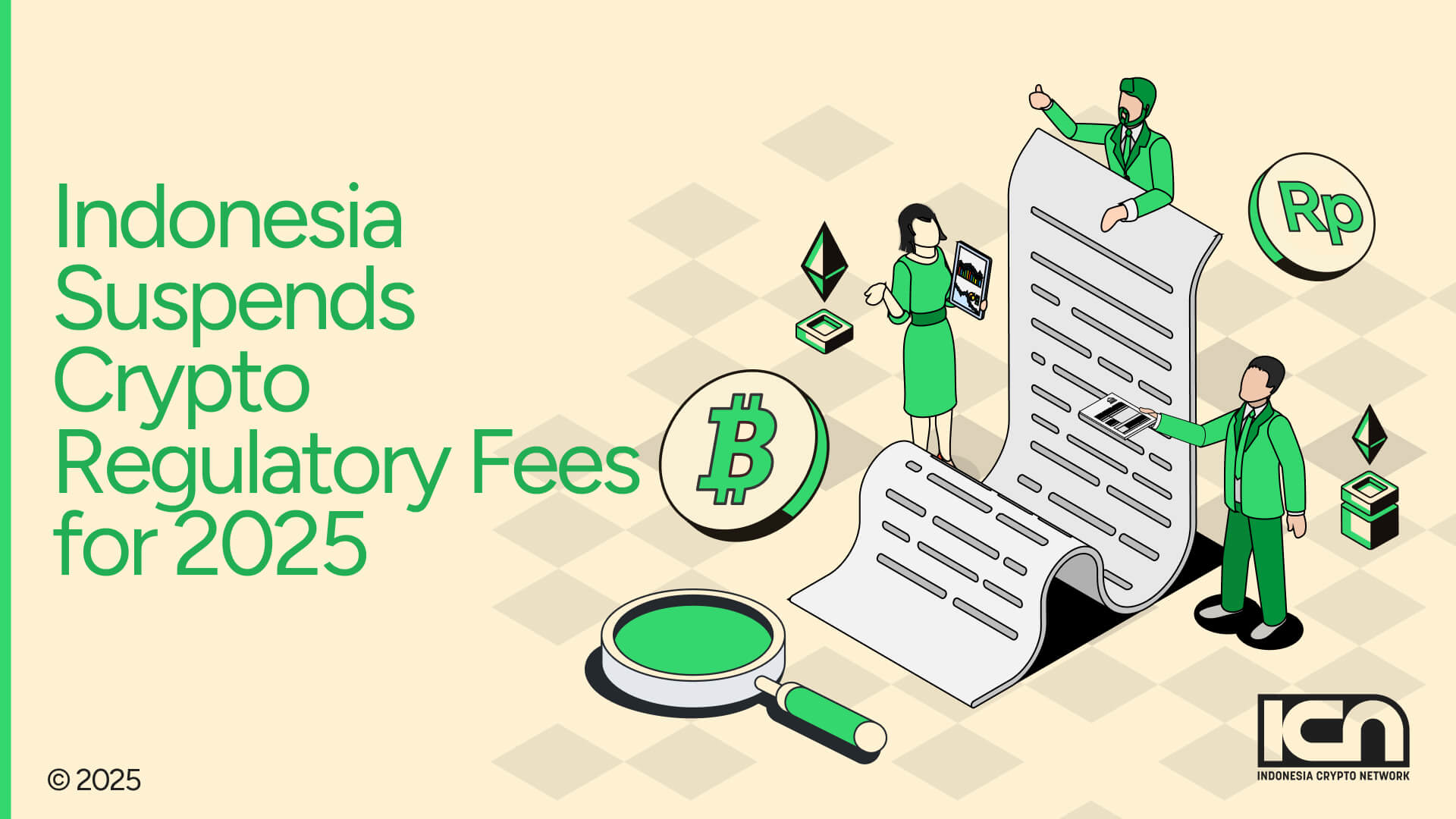In a move aimed at accelerating growth in its digital asset ecosystem, Indonesia’s Financial Services Authority (OJK) has waived all regulatory fees for licensed crypto service providers for the full year of 2025. Announced in early July through OJK Regulation No. 27 of 2024, the policy applies to digital asset exchanges, custodians, token issuers, and clearing houses operating under OJK’s jurisdiction.
The fee suspension marks a key milestone in Indonesia’s transition from commodity-based oversight under Bappebti to financial regulation under OJK. Existing licenses granted by Bappebti will remain valid under OJK’s framework, allowing companies to continue operations without the burden of re-registration.
OJK said the waiver reflects its commitment to building a healthy, inclusive, and innovation-driven digital finance ecosystem. “This is a form of OJK’s support and prioritization in developing the IAKD [Digital Financial Innovation] sector in Indonesia,” said Hasan Fawzi, Executive Head of Financial Technology Innovation at OJK.
While the fee waiver was welcomed by the industry as a positive gesture, stakeholders are quick to point out that it only addresses part of the equation. Attention is now shifting to Indonesia’s unresolved structural issue: taxation.
Read more: Indonesia’s Crypto Surge: 352% Growth and Rp475 Trillion in Transactions for 2024
Beneath the Surface, Tax Burden Remains a Drag
Despite regulatory momentum, Indonesia continues to apply a tax framework that many view as outdated and misaligned with the current classification of digital assets. Crypto transactions are still subject to both a value-added tax (VAT) of 0.11% and an income tax (PPh) of 0.1% for individuals and 0.05% for entities—levied on the gross value of each transaction, not on realized profits.
This structure means that traders are taxed regardless of whether they make a gain or incur a loss. The result is a punitive environment for high-frequency trading, discouraging domestic exchanges and pushing users toward platforms based in lower-tax jurisdictions. For early-stage builders and startups, the current system also lacks the types of incentives seen in more crypto-friendly markets.
This tax model was originally developed when crypto was still regulated as a commodity under Bappebti. Now that digital assets are recognized as financial instruments under the oversight of OJK, industry groups argue that the tax code must be updated to reflect the sector’s new legal status.
Robby, Chairman of the Indonesian Blockchain Association (ABI) and Aspakrindo, welcomed the policy shift as a sign of progress but emphasized that regulatory support must be matched by fiscal action.
“This is absolutely a positive step, but our industry still needs a lot more support on all fronts,” he said.
Robby added that unless Indonesia’s tax burden is revised, it will continue to hinder local businesses from competing globally.
“I hope tax policies can be adjusted as well, because without that, local players will always be at a disadvantage compared to international ones.”
He also warned of the long-term consequences if policy gaps remain unaddressed, “If our fiscal approach remains rigid and unattractive, we’re going to see brain drain and capital outflow.”
A similar sentiment was expressed by William Sutanto, CTO of Indodax, Indonesia’s largest exchange, who noted that the fee waiver demonstrates OJK’s commitment—but also called on fiscal authorities to take action.
“This regulatory relief shows intent,” he said, “but it needs to be complemented with crypto tax reform.”
Without changes to how digital assets are taxed, many fear the current policy progress could lead to an ecosystem that is legally compliant but commercially unsustainable.
Read more: Indonesia’s Crypto Tax Revenue Surpasses IDR 1 Trillion
Conclusion: A Strong Signal, but Not Yet a Complete Framework
Indonesia’s suspension of crypto regulatory fees for 2025 marks a meaningful step toward a more open and supportive environment for digital asset businesses. It reflects OJK’s forward-looking stance and a desire to lower friction for compliant operators.
But without tax reform, the country risks falling short of its potential. The next phase will require coordination across ministries, and a policy approach that sees digital assets not just as instruments to be controlled, but as industries to be cultivated.
For those ready to build in Southeast Asia’s largest crypto market, now is the time to engage—and ICN stands ready to help lead the way.




